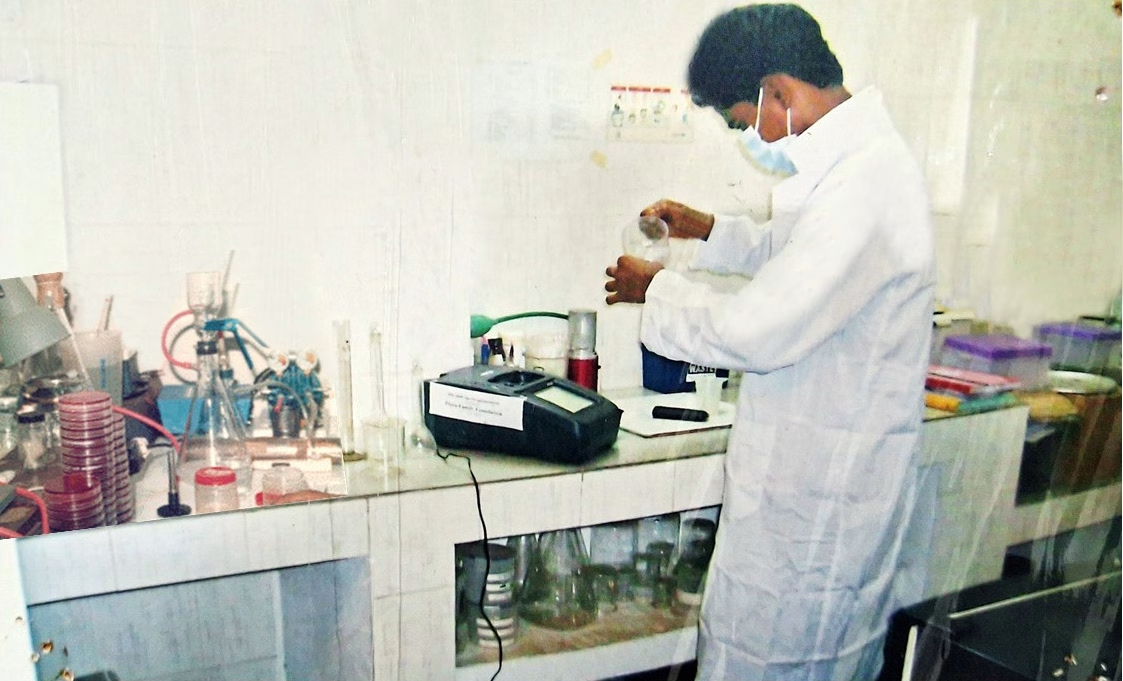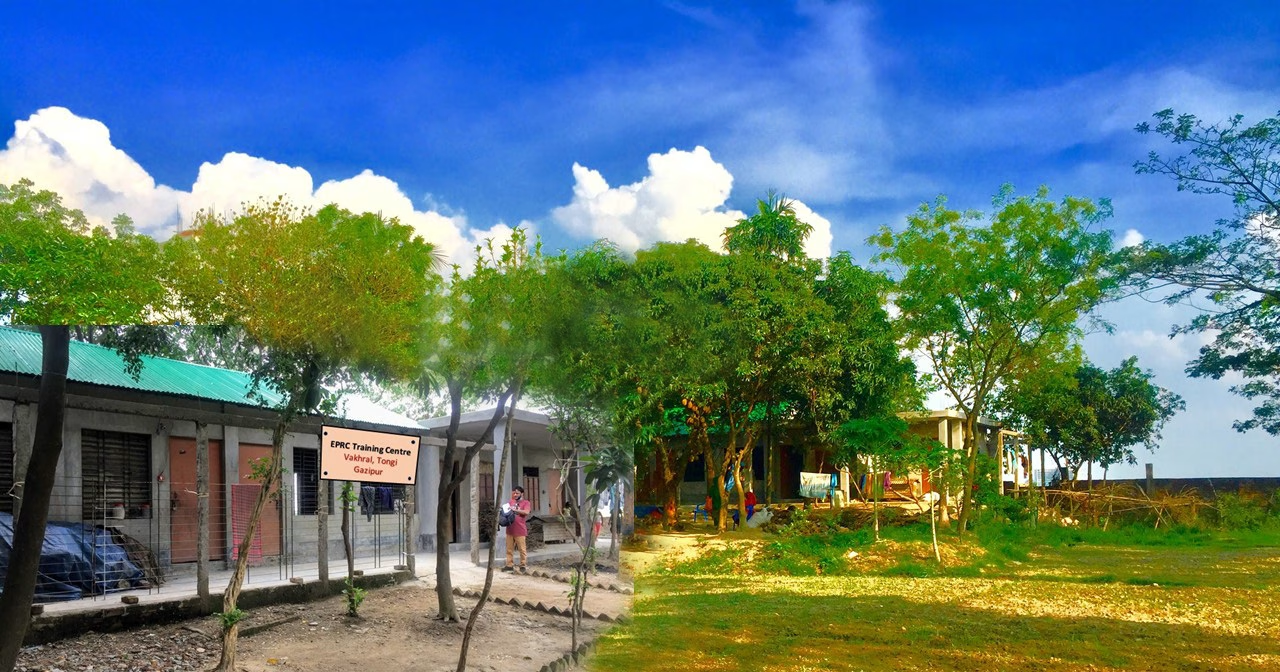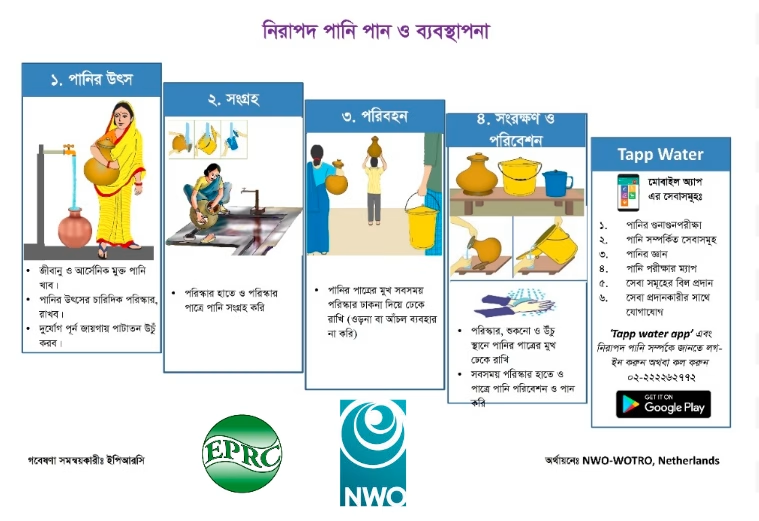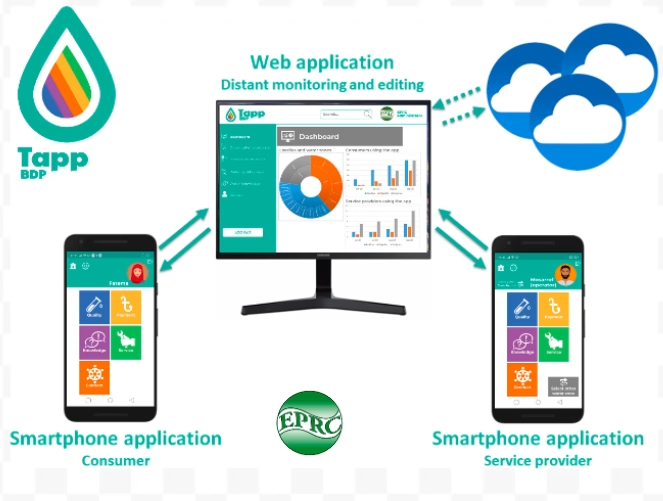Our Services
Explore our comprehensive services designed to address environmental and population challenges in Bangladesh.

Environmental and Basic Food Testing Laboratory
The laboratory is equipped to test the quality of drinking and wastewater. It also provides food quality testing services, including microbiological analysis, nutrıtional content, and detection of chemical pollutants such as pesticides, heavy metals, moisture, acidity, pH, viscosity, and more. The lab is expanding its capacity to test effluents from the garment and textile industries’ ETPs (Effluent Treatment Plants)

Training Services and Facilities Development
EPRC operates a modern training center located in the outskirts of Tongi, Gazipur, with facilities for 30 trainees. It serves as a hub for capacity building, training, orientation, and foundational courses for government, NGO staff, and corporate sector professionals.
GIS and Remote Sensing
The GIS (Geographic Information Systems) and Remote Sensing unit focuses on the study and application of geospatial data to understand, analyze, and interpret the Earth’s surface and its features. This unit integrates technology, geographic science, and data analysis methods to solve complex environmental, urban planning, and resource management challenges.
This section is responsible for creating and managing materials in the context of WASH, environment, health, development, or any other social change. They understand the needs, literacy levels, cultural sensitivities, and communication preferences of different audience segments to design and produce pamphlets, posters, leaflets, videos, audio messages, etc. They also collaborate with subject-matter experts to develop accurate, clear, and relevant content based on the objectives of the program (e.g., health promotion, safety awareness, social behavior changes).


MIS and Knowledge Management
A structured MIS system is designed to collect, process, store, and disseminate information to support decision-making and improve the effectiveness and efficiency of organizational operations. It includes data collection, data processing, information storage, reporting and output, real-time information, support for decision making, security and access control, user-friendly interface, customization, and data analysis tools. While knowledge management (KM) focuses on making knowledge more accessible and leveraging it to improve decision-making and performance. It includes knowledge capture, storage, and sharing, collaboration tools, search and retrieval, expert networks, continuous learning, knowledge creation and innovation, content management, security and governance, integration with other systems, and performance measurement
